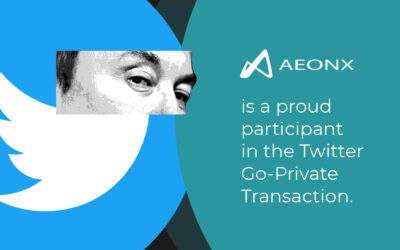Allow us to ask you three questions.
Q: Have you heard the term “Unicorn” but aren’t sure what it means?
Q: Have you been seeing ads to invest in “pre-IPO” Unicorns through social media or digital billboards?
Q: Do you know the difference between the “public” versus the “private markets”?
—
A: Unicorns are privately held companies with billion-dollar valuations before they go public on Wall Street.
A: Many new funds and similar companies are providing more access to individuals, who meet the definition of an accredited investor, to invest in Unicorns before they go public.
A: While the public markets have existed since the inception of “Wall Street” and are meant to allow individual investors to participate in the stock market, until recently the private markets were the domain of institutions like venture capital, private equity, and investment banks. Now, the private markets are becoming more accessible to individual investors. This has been driven mainly by smaller private funds pioneering access to shares of Unicorns before they go public, by increasing demand by individual investors to participate in Unicorn companies before they go public, by the development of decentralized FINTECH and WEALTHTECH platforms, and by the U.S. Securities and Exchange Commission’s (“SEC”) recent amendments to the definition of accredited investors.
This article will further explore these three questions and answers to assist qualified individuals with participating in the private markets.
How to participate in Private Markets and Unicorns
If you’re interested in participating in the private markets and are accredited, a good starting place is to understand the difference between the public markets and the private markets, and how they’re accessed by individual investors.
The public markets for securities are what we’ve all come to know as the “stock market”. Like the NASDAQ or NYSE. Companies listed on these and other exchanges are “publicly traded”, and to some varying degree provide routine public access to their performance information. This information allows investment advisors and others in the financial services to complete due diligence, and recommend it as an investment to their individual clients. This has become even more acute with the recent passage of “Regulation BI” [Best Interest] which obligates licensed advisors to act in their clients’ best interest. If an advisor, or broker, does not have enough information to complete due diligence in order to make a recommendation, they will avoid it. Which makes it virtually impossible for them to recommend private investments to their individual clients.
This leads us to the private markets. Before companies go public, from seed to IPO (or acquisition, or another exit, or out of business) their securities are considered “private”. In order for investors to access private securities they must meet the definition of being accredited, and they need a vehicle for getting company approval to be a shareholder. Companies that are venture-backed and preparing for a public exit generally limit the number of shareholders, for regulatory and other reasons, which limits individual investors’ access.
Two ways of Investing
Diving a little deeper, there are two ways of investing in a private company. The first is through what is called a “primary” offering by the company. In a primary offering, the company is issuing shares through a private placement, generally to venture capitalists and other institutions. The other way is through what is called a “secondary” offering by existing shareholders of the company. In a secondary offering, existing shareholders sell their private shares, in a private transaction, to a group that is approved by the company. Keep in mind that the company’s approval is required because the company is “protecting” its capitalization table.
Remember this important distinction between the “public” and the “private” markets. In the public markets, there is transparency and liquidity. In the private markets, there is neither. As a result, the private markets are generally only accessible to institutional and qualified purchasers. This has not deterred individual investors from getting involved, however.
Beginning around 2012, private equity funds began to form on Wall Street in an effort to give individual clients of their affiliated broker-dealer’s access to pre-IPO companies (before they were known as “Unicorns”). These private equity funds have survived and thrived, along with providers of access to data and other information on private companies. Alongside the growth of these funds, have also been a growing number of billion-dollar pre-IPO Unicorns, which are now highly sought after by institutions and individuals alike.
Private Equity funds that have been a consistent and reputable player in the private markets have gained enough of a reputation for companies to allow secondary transactions and the fund as a shareholder, and in some instances also offer access to primary rounds to these same funds.
What makes these funds different from other venture capital and private equity is that their members or limited partners are not a handful of “ultra-high net worth” individuals, also known as qualified purchasers (“QPs”), or a select group of institutions, also known as qualified institutional buyers (“QIBs”). These fund investors are accredited individuals. Under new SEC rules, the number of accredited individuals who now have access to these funds has increased substantially.
Further, many of these funds distribute the underlying shares purchased on behalf of their investors after the company IPOs, and the shares are freely transferable. This gives investors the option to keep their stock after it’s publicly traded. In essence, what the funds are doing is aggregating individual accredited investors into pools, purchasing shares of or related economic interests in Unicorns through the private markets, holding them until the company goes public or is acquired, then distributing them to investors to do what they want upon receipt.
As the demand for access to Unicorn stock has grown, so has the number of private equity funds offering opportunities for individual investors to participate. Exposure to these funds has been traditionally limited, however, due to the complex rules around “general solicitation” of a private securities offering. New SEC rules are making this easier for private equity funds, as well as companies, to reach potential investors. This is why you may be seeing more ads for “pre-IPO stock” on your social media feeds.
Do a search for “pre-IPO stock” and you’ll find a number of companies that appear that are offering access to individual accredited investors.
Things to consider before participating in pre-IPO funds
Individuals do need to be wary of a few things before seeking to participate in pre-IPO funds.
The first thing is to be clear on whether, or not, the fund has access to, or has already procured the economic interests of a company you want. Many funds aggregate investor capital in order to then go into the private markets and seek sellers. Other funds use their own buying power to procure economic interests in the private markets and then bring in investors. Others do both. Demand for access to company stock before it goes public has always exceeded supply, and as demand grows, the market is becoming more competitive. Funds are often either unable to procure the shares or to get approved by the Company for the transfer.
It’s important to know exactly how your capital is being utilized and to set your expectations accordingly.
The second thing is to be clear on the fees associated with your investment in a pre-IPO fund. Private equity funds and the fees they charge are essentially limited only by demand and disclosure. Given that demand generally exceeds supply in the private markets, private fund managers justifiably charge higher fees than funds that invest in the public markets. These fees may substantially impact the performance of your investment.
The third thing is exit and performance expectations. As demand for company stock prior to its IPO increases and supply decreases, the price to purchase shares of that company in the private markets becomes closer to the expected IPO price. This can severely impact short-term performance. Where QIBs and QPs generally have a longer exit horizon, from three to five years (and sometimes longer depending on what stage they invest in), individual investors tend to be accustomed more to the public markets and therefore expect liquidity within a much shorter time period. To expect short-term liquidity and venture capital like returns isn’t realistic. The only way to achieve venture capital-like returns is to invest earlier into companies and hold longer until liquidity, through private equity funds with managers who have a proven track record of delivering and a solid investment strategy.
Sometimes it’s more about access than a return. Take Space Exploration Technologies, Inc. (“SpaceX”) for example. While SpaceX has no intention of going public anytime soon, individual investors want access to the company’s stock for no other reason than to feel a part of its mission.
Another thing to keep in mind, if you invest in a private equity fund and receive shares through a distribution after IPO, is how post-IPO stock trades. Typically, six months after an IPO, private shares that were restricted from transfer become “free trading”. These shares are held by insiders who purchased or received the shares prior to IPO. When all of these insiders become liquid, a sell-off occurs putting downward pressure on the stock. At which time individual investors who have received shares have to ask themselves if it’s better to hold further, or try to sell off too.
Lastly, it’s important to understand that investments into private offerings, whether through funds or directly into companies, are extremely speculative and risky. Accredited investors should only invest a small portion of their total portfolio in these opportunities, and work with a licensed financial broker or advisor to ensure it’s a suitable investment.
The winning formula seems to be getting in earlier and holding longer after IPO. Take Facebook, Twitter, and many other “unicorns” as an example. Individual investors who accessed and were distributed shares of Facebook in 2012 and Twitter in 2013 through a private equity fund, and who still hold the stock in those companies today would have venture capital-like returns, to say the least.
In case you want to participate in this type of Investment, then you should try our AEONX App. You can download it on the App Store and Google Play.



